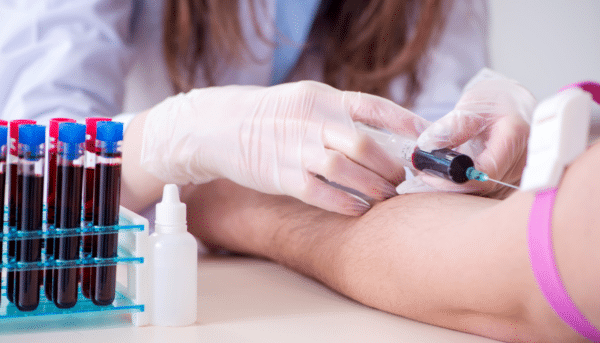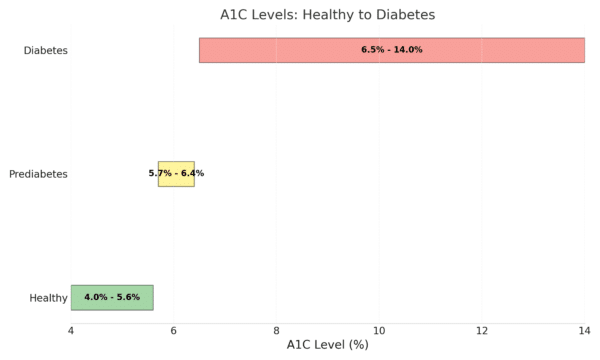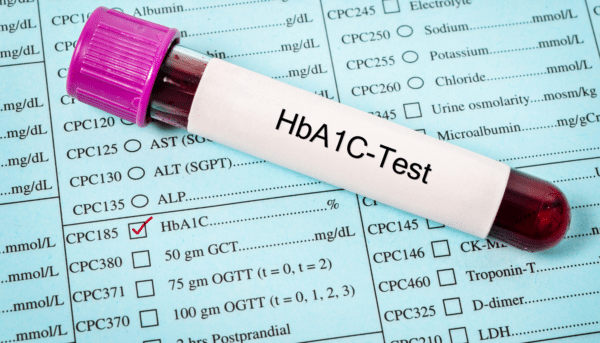Introduction
Navigating the world of medical tests can sometimes feel like walking through a maze. With so many do’s and don’ts, it’s easy to get lost. In the realm of diabetes management, it’s absolutely essential to fully comprehend how your day-to-day habits could potentially jumble up those all-important test outcomes. Immersing ourselves into the heart of the A1C test, a pivotal component in our arsenal for diabetes control – we’re left pondering whether your latest dietary indulgence could potentially distort these crucial findings. Time to unravel this mystery!

Understanding A1C Tests
What is an A1C Test?
The A1C test, also known to many as the HbA1c or glycated hemoglobin test, is a simple blood test used to measure the average level of glucose attached to hemoglobin over the past three months. This test gives you a peek into your blood sugar control over the long haul, letting you see if your tactics to manage diabetes are hitting the mark.
What Does an A1C Test Show?
This test is a cornerstone in diabetes management, revealing the percentage of glycated hemoglobin in the blood. The higher the percentage of the result, the higher the blood sugar levels have been, which can indicate the risk of diabetes complications.
The Importance of A1C Tests in Diabetes Management
Regular A1C testing is vital for individuals with diabetes. It helps you keep an eye on how well your treatment’s working, tweaking meds, grub, and workouts as needed. Maintaining balanced A1C levels is like a secret weapon to sidestep gnarly health issues, such as nerve impairment, vision complications, and heart conditions – it’s simply the savvy route for preserving your well-being and avoiding future medical pitfalls.

The Impact of Diet on A1C Results
Does A1C Fluctuate Daily?
Unlike daily blood sugar tests, the A1C test provides a long-term picture. It’s not subject to daily fluctuations but reflects the cumulative effect of blood sugar levels over several months.
What Raises A1C the Most?
High carbohydrate intake, particularly from refined sources like sugar-sweetened beverages and white bread, can lead to increased blood sugar levels and, consequently, a higher A1C.

Common Questions About A1C Testing
How Often Does A1C Change?
A1C levels gradually change as red blood cells turn, typically every three months. This is why A1C tests are recommended quarterly for people with diabetes.
What Causes False High A1C?
Certain conditions, such as anemia or heavy bleeding, can falsely elevate A1C levels. It’s important to discuss any potential factors with your healthcare provider.
Can Your A1C Go Up in a Week?
Significant changes in blood sugar levels over a week can impact overall glucose control, but due to the nature of the A1C test, a week’s worth of high readings won’t immediately reflect in the A1C results. The test averages blood sugar over the past three months, making short-term spikes less influential.
How Fast Can Your A1C Change?
Rapid changes in lifestyle or medication can alter blood sugar levels quickly, but the A1C test will only show these changes over the lifespan of red blood cells, around three months. Consistency in blood sugar management is key for a noticeable change in A1C levels.
Eating before an A1C test does not affect the results.

Fasting and A1C Tests
Is A1C Affected by Not Fasting?
Unlike many other blood glucose tests, the A1C test does not require fasting. This is because the A1C reflects your blood sugar levels over the past three months, not immediately before the test.
Should You Fast for an A1C Test?
Fasting is not necessary for an A1C test. This makes the A1C test more convenient than other types of blood glucose tests that require fasting.
What Happens If You Don’t Fast?
Since fasting is not a requirement, eating before an A1C test does not affect the results. This is one of the advantages of the A1C test, providing flexibility for patients when scheduling their test.
Best Practices for Accurate A1C Testing
How Often Should A1C Be Checked?
For individuals managing diabetes, the American Diabetes Association recommends that A1C tests be performed at least twice a year if the blood sugar levels are stable and the treatment goals are being met. For those who have recently changed medications or are not meeting their glycemic goals, quarterly testing is advisable.
What Time of the Day Should You Take an A1C Test?
Because the A1C test does not require fasting and is not affected by daily fluctuations in blood sugar levels, it can be taken at any time of the day. This flexibility helps in accommodating the test within the patient’s schedule without affecting the accuracy of the results.
How Long Does It Take to Get an Accurate A1C Reading?
An accurate A1C reading requires a few months of consistent blood sugar levels to reflect true glycemic control. If there have been recent significant changes in your management plan, it might take up to three months for these changes to be fully represented in your A1C results.

Conclusion
In summary, the A1C test is a vital tool in managing diabetes, offering a long-term view of blood sugar control. Unlike many other tests, eating before an A1C test does not affect the results, making it a convenient option for patients. Getting a grip on how your grub, everyday habits, and meds sway A1C levels can let you sharpen your diabetes control game and dodge nasty complications. Keeping up with regular check-ups, just as your doctor suggests, is key to staying on top of things and hitting those treatment targets.
FAQs
- Can eating sugary foods the day before an A1C test affect my results? Eating sugary foods the day before your test won’t directly affect your A1C results, as the test averages blood sugar levels over a three-month period.
- How accurate is the A1C test? The A1C test is highly accurate and is standardized across labs. However, certain conditions can affect its accuracy, so it’s important to discuss any concerns with your healthcare provider.
- Can I drink water before an A1C test? Yes, drinking water does not affect the A1C test, and staying hydrated is generally good practice.
- What is considered a good A1C level for someone with diabetes? A good A1C level for someone with diabetes is generally considered to be below 7%, but individual goals may vary based on the advice of your healthcare provider.
- Does an A1C test replace daily blood sugar monitoring? No, the A1C test does not replace daily blood sugar monitoring. So, managing diabetes isn’t a one-and-done deal, right? You need to balance both daily blood sugar monitoring and regular A1C tests. It’s kind of like how a movie doesn’t just come from the director’s mind – they use a book as their blueprint, similar to how we use these two tools in harmony to keep diabetes under control effectively.
Following these tips and really getting the hang of A1C tests lets folks with diabetes take control, leading to healthier lives and a better quality of life. If you need information on the Walk-In Lab A1C Tests, click here.

